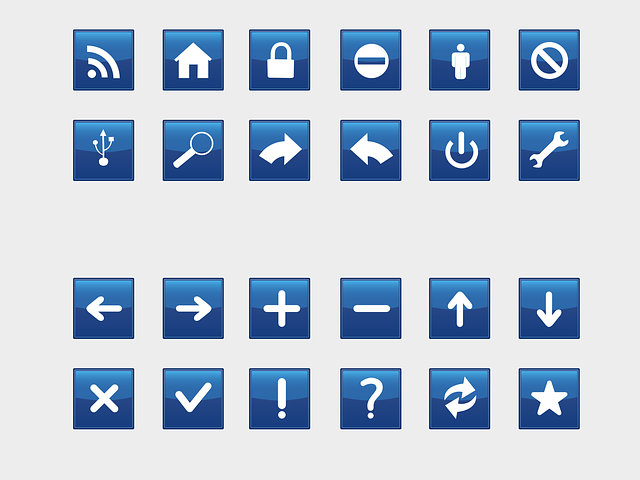Navigating Oregon DHS (Department of Human Services) child welfare cases requires understanding complex laws and regulations designed to protect children while ensuring due process. Key aspects include eligibility criteria, removal processes, court hearings, and available support services. Effective strategies involve proactive communication with DHS representatives, thorough documentation, and seeking qualified legal counsel experienced in Oregon DHS cases. By combining legal expertise with comprehensive strategies, individuals and families can successfully navigate these complexities and advocate for the best interests of their children within the Oregon DHS child welfare system.
“Navigating Oregon DHS Child Welfare Legalities: A Comprehensive Guide for Effective Case Management. This article illuminates the intricate landscape of Oregon DHS child welfare cases, providing an in-depth overview and practical strategies. From understanding key legal aspects to ensuring robust evidence documentation, it equips professionals with tools for successful case navigation. Discover effective procedures, the role of legal representation, and post-case support services crucial for positive outcomes. Explore these insights to enhance your approach to DHS cases.”
- Understanding Oregon DHS Child Welfare Cases: An Overview
- Key Legal Aspects to Consider in DHS Cases
- Effective Strategies for Navigating DHS Case Procedures
- The Role of Legal Representation and Support Services
- Documenting and Preserving Evidence in DHS Cases
- Post-Case Outcomes and Ongoing Support for Families Involved
Understanding Oregon DHS Child Welfare Cases: An Overview

Understanding Oregon DHS Child Welfare Cases provides a crucial foundation for anyone involved in or affected by such cases. These proceedings are governed by a complex web of laws and regulations designed to protect the best interests of children while ensuring due process rights for all parties. Oregon’s Department of Human Services (DHS) plays a central role, working collaboratively with courts, social workers, attorneys, and advocates to resolve child welfare matters.
Navigating these DHS cases requires a deep understanding of legal procedures specific to Oregon. This includes familiarizing oneself with case eligibility criteria, removal processes, court hearings, and available support services. Effective strategies involve proactive communication with DHS representatives, thorough documentation, and seeking qualified legal counsel experienced in handling such cases. With the right approach and support, individuals and families can confidently navigate the complexities of Oregon DHS child welfare proceedings.
Key Legal Aspects to Consider in DHS Cases

When navigating Oregon DHS (Department of Human Services) child welfare cases, understanding the key legal aspects is crucial for an effective case strategy. The process involves a series of specific procedures that must be followed meticulously to ensure fairness and due process. Familiarity with these legalities enables advocates and families to actively participate in the decision-making process, protecting the rights of all involved.
Oregon DHS child welfare cases operate within a structured legal framework, ensuring transparency and accountability. Key considerations include access to legal counsel, understanding removal criteria, and knowledge of the evidence-based assessment process. Knowing how to challenge or support specific legal procedures can significantly impact the outcome, offering vital support for families navigating these challenging times.
Effective Strategies for Navigating DHS Case Procedures

Navigating the complex web of DHS (Department of Human Services) child welfare legal aspects requires strategic preparation and a deep understanding of the procedures specific to Oregon DHS child welfare cases. One effective strategy is to thoroughly research and familiarize yourself with the state’s regulations, policies, and guidelines that govern these cases. This includes knowing the steps involved in the intake process, case assessment, and subsequent interventions, as outlined by DHS legal procedures Oregon. By staying informed, you can better anticipate potential challenges and proactively develop solutions tailored to each unique child welfare case.
Additionally, building a strong support network is invaluable when navigating DHS cases. Collaborate with legal professionals experienced in Oregon DHS child welfare law, who can provide guidance and ensure compliance with the necessary legalities. Foster relationships with social workers, attorneys, and advocates who share a commitment to supporting vulnerable children and families. This collaborative approach not only offers diverse perspectives but also enhances your ability to navigate the intricate DHS case procedures, ultimately advocating for the best interests of the child within the Oregon DHS child welfare system.
The Role of Legal Representation and Support Services

In Oregon DHS child welfare cases, having competent legal representation is paramount to successfully navigating the complex legal procedures. Attorneys specializing in this field can provide invaluable support for parents and guardians involved in such cases, ensuring their rights are protected throughout the process. They offer essential guidance on understanding the law, interpreting court orders, and developing robust case strategies tailored to each client’s unique circumstances. This proactive approach empowers individuals to actively participate in making informed decisions regarding their child’s welfare.
Support services complement legal representation by offering a safety net for those navigating DHS cases. These services can include counseling, advocacy groups, and social work assistance. By combining legal expertise with emotional and practical support, these comprehensive strategies enhance the chances of positive outcomes in Oregon DHS child welfare cases. Parents gain the tools and resources needed to advocate for themselves and their children, fostering a collaborative environment that is beneficial for all involved.
Documenting and Preserving Evidence in DHS Cases

In Oregon DHS child welfare cases, documenting and preserving evidence is a critical component of navigating these complex legal procedures. Effective case strategies require meticulous record-keeping to ensure all interactions, observations, and findings are accurately recorded. This includes detailed notes on family dynamics, interviews with stakeholders, and any relevant facts or circumstances that could impact the outcome. Legal professionals supporting DHS cases must be adept at collecting and organizing evidence to strengthen their arguments and protect the rights of all involved parties.
When navigating DHS legalities in Oregon, it’s crucial to understand that preserving evidence is not merely about compliance but also about ensuring fairness and transparency throughout the process. This involves utilizing digital tools for secure data storage, maintaining chain-of-custody protocols for physical evidence, and adhering to legal requirements for admissible documentation. Such strategies enable a comprehensive understanding of each case, fostering informed decision-making and promoting positive outcomes for Oregon’s child welfare system.
Post-Case Outcomes and Ongoing Support for Families Involved

After a child welfare case with Oregon DHS comes to a close, families often find themselves navigating uncharted territory. Post-case outcomes vary widely depending on the specific circumstances and the strategies employed during the legal proceedings. Successful resolutions can include safe and permanent placements for children, reunification with parents who have successfully addressed underlying issues, or alternative arrangements tailored to the family’s unique needs.
Ongoing support is crucial for families involved in Oregon DHS child welfare cases. This may involve continued counseling, access to resources like financial assistance or housing programs, and regular check-ins with caseworkers to ensure stability and well-being. Many families benefit from connecting with support groups and community organizations that specialize in helping individuals navigate the complexities of DHS legalities and transition successfully into post-case life.
